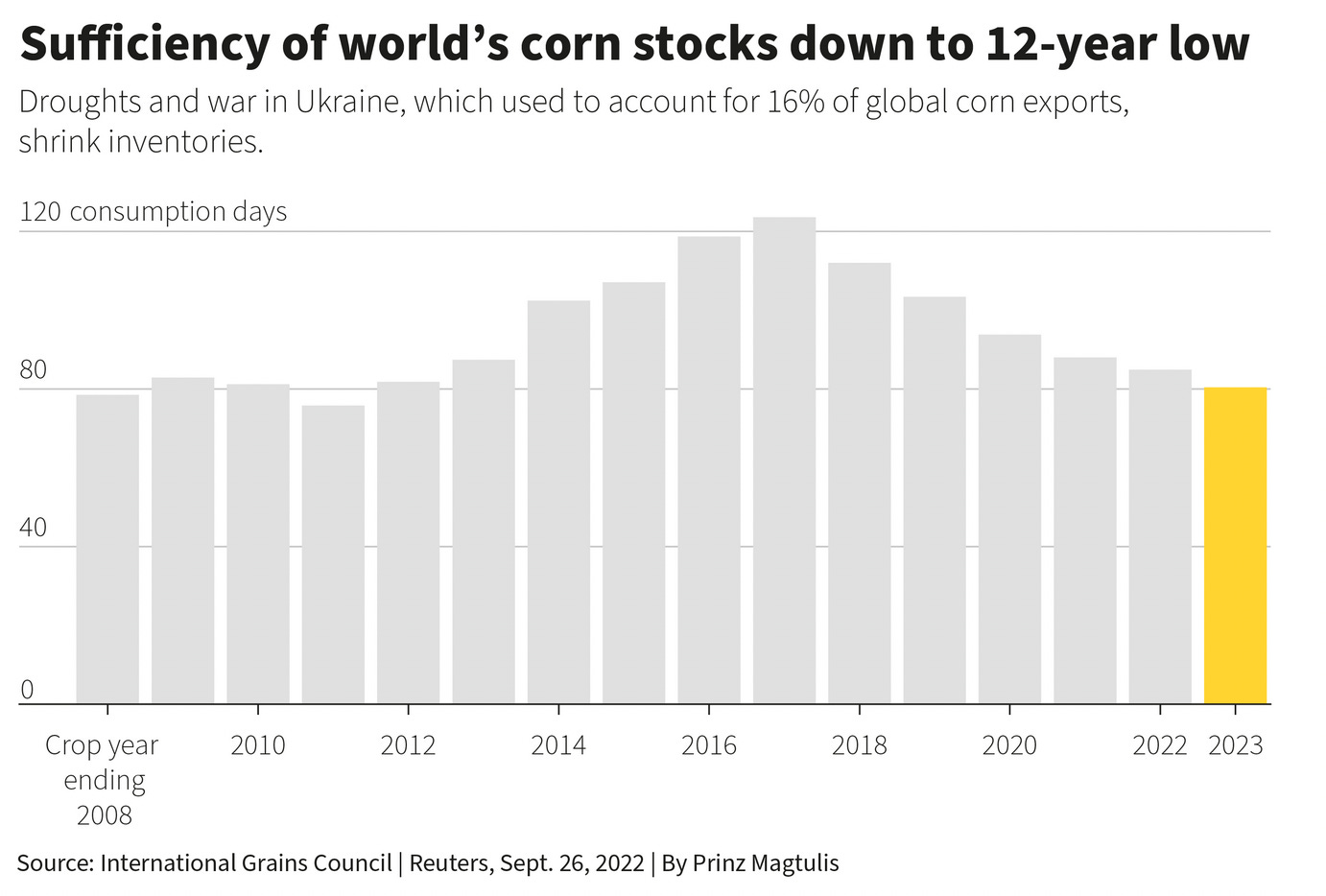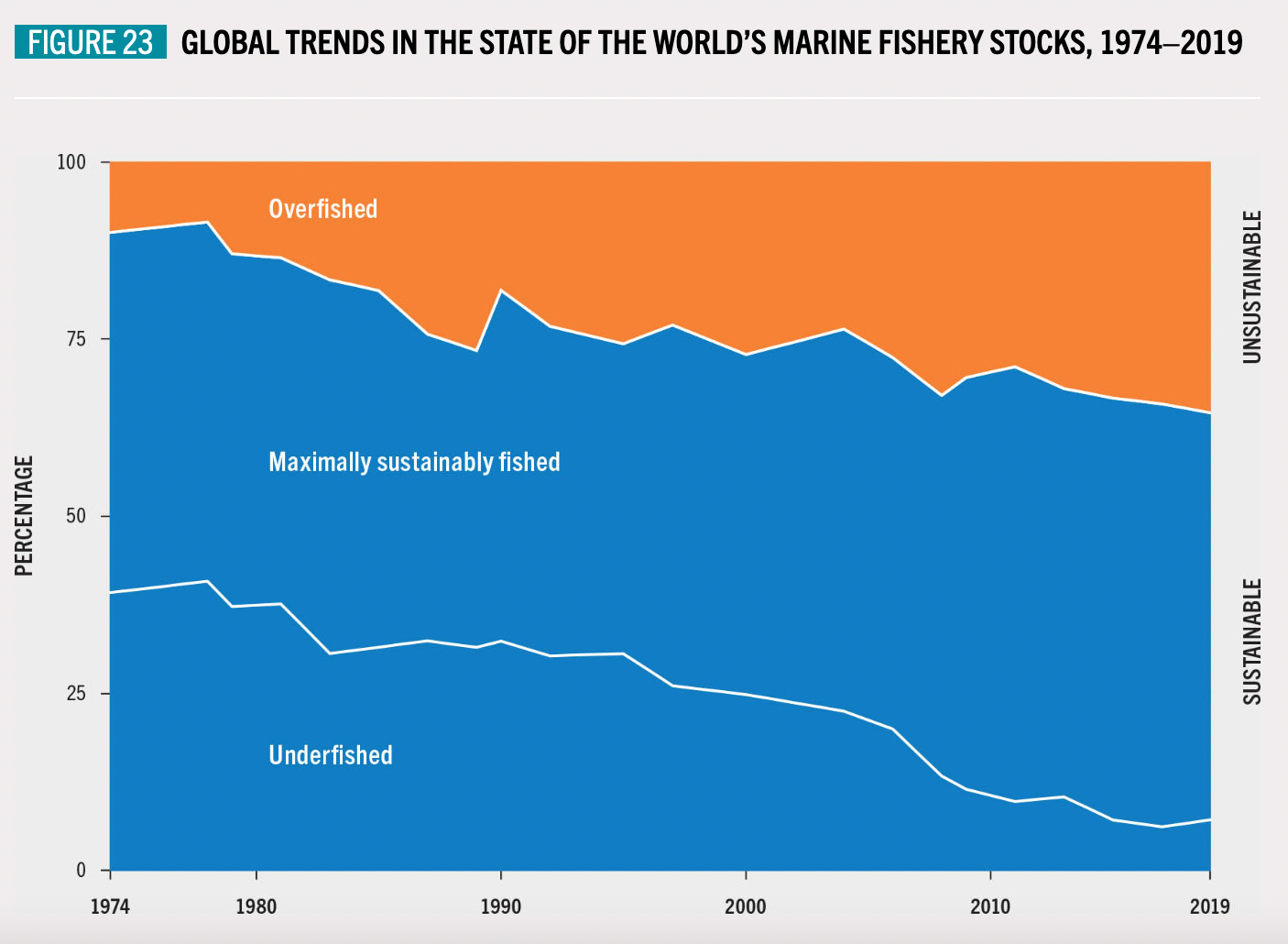Authorities are bracing for a new food crisis as storms and droughts batter farmland and over-fishing drains the seas
(Originally published Sept. 28 in “What in the World“) As Florida deploys the National Guard ahead of hurricane Ian’s arrival from a devastated Cuba, major rice exporter Vietnam is bracing for the arrival of Super Typhoon Nora, which just blasted through the Philippines. Climatologists say warming seas are causing tropical cyclones to not only become much stronger, but to intensify much more quickly, reducing the time experts have to identify them as a threat and for communities to respond.
Droughts across North America, Europe and East Asia, meanwhile, are hurting grain production, overcoming any relief from the resumption of Ukrainian exports and pushing global inventories to their lowest level since 2012, when food shortages sparked world-wide riots. The International Grains Council told Reuters that stocks of corn are on track to drop 28% from their level five years ago to their lowest since the 2010-11 crop year.

Trouble is lurking below the surface, too. Having fished out its own coastal waters, China’s deep-water fishing fleet is threatening fish stocks far from home, from the South Pacific to the Indian Ocean and from Africa to Latin America, according to The New York Times. Using mother ships to store smaller boats’ catch, China’s fleet has set up a permanent presence in international waters around South America. While the Times offers plenty of data and compelling graphics on the growing size of China’s fishing fleet, its only evidence of the impact is a reference to the Food and Agriculture Organization’s latest report on “The State of World Fisheries and Aquaculture.” That report is chocked full of useful data and concludes that global fishing is becoming less sustainable.

To combat growing food shortages in the Asia-Pacific due to climate change , the Japan-led Asian Development Bank has earmarked at least $14 billion in concessionary loans over the next three years to support farming and food supplies respond.